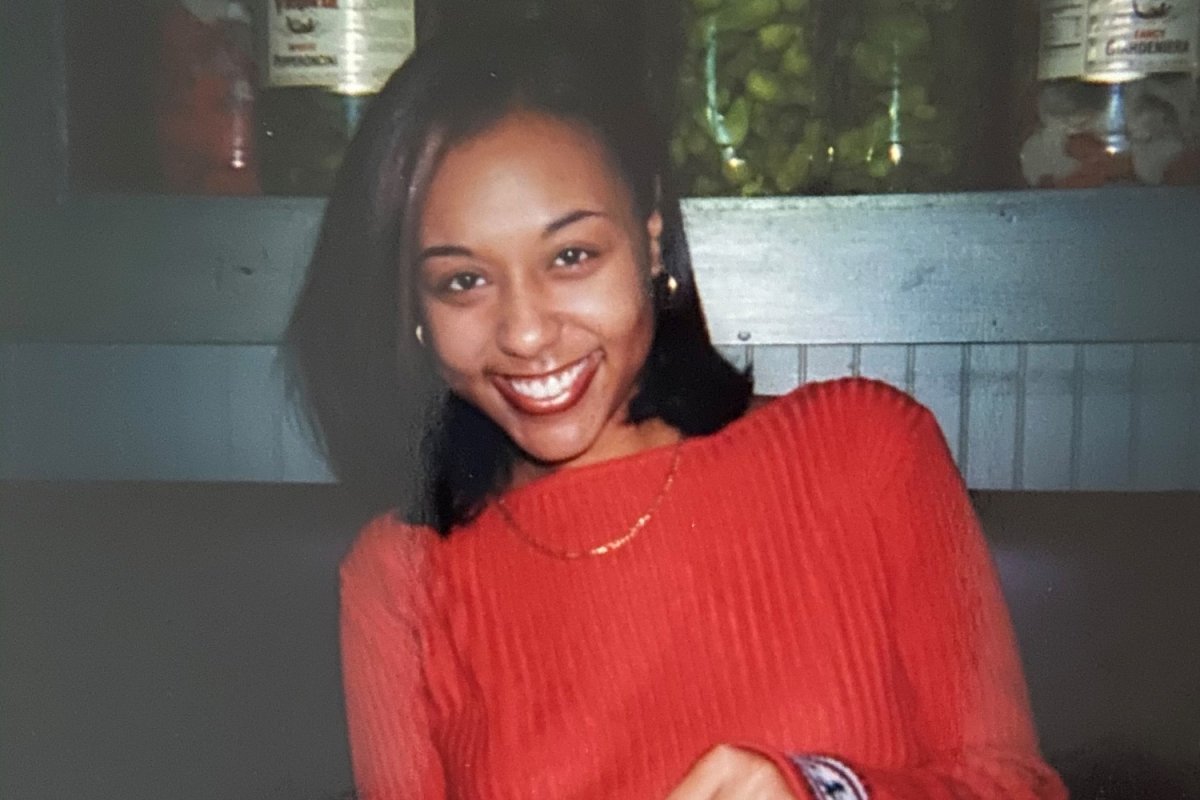They say God only gives you what you can handle. If that's true, then I am happy to call myself a warrior.
At 42, I am truly my fullest, happiest, strongest self. But I believe I would not be here had I not walked through the fire of an eating disorder, anxiety and depression, and sometimes overwhelming thoughts of ending it all.
If my husband had not been put on my path—if he had not spent those dark days showering me with support and unconditional love—I shiver to think how our lives, my children's lives, would look.
Learning unhealthy habits
Throughout my life, I have struggled with my weight. Or, to be more specific, I struggled with other people's perception of it. Even as a child, I was constantly aware of my body, with family and family friends pointing out when I was eating too much, instructing me on how much I should weigh, reminding me when I went over that amount, and praising me when I fell under it.
This, combined with my never-ending nature of being a people-pleaser, forced me to constantly worry about being too big for the people around me. I needed to be smaller for them.

This need pushed me to try any way I could to lose weight, including starving myself. My battle with anorexia started when I was 12 years old, and continued until I was an adult, when I went into recovery at the age of 38.
I spent my days worrying over calories and pushing away thoughts of hunger, but all that did was make me more anxious and lead me to significant depressive episodes where I felt I wasn't good enough for the life I was living.
The worst part—or maybe the best part—was that I suffered from atypical anorexia, which meant I had all the symptoms of anorexia but was never underweight. That difference saved my life, though at the time I didn't see it that way. Instead, the idea that I couldn't starve myself thin just increased the negative thoughts floating around in my brain and encouraged me to believe there was something wrong with me.
I had other anxieties, too. I wanted to be perfect and please people all of the time. When I "failed" at pleasing others and being perfect I would go into a deep depression and be very hard on myself. This became a dark cycle and by the age of 38 I was clinically depressed.
Leading a double life
The amount of time I spent contending with these thoughts is incomputable. I chose to hide these anxieties from the world, playing the role of the dutiful pastor's daughter, the NBA star and former Olympian's supportive wife, and the mother of two young children who had it all together.

From the outside, it looked like I had the perfect life. I grew up in a middle-class, two-parent home. My father was a pastor of a thriving church back then and I wanted for nothing materially. From private schooling, to a suburban home and beautiful clothing, I had a lot more than a lot of my peers.
As an adult, my life looked like a fairytale. I had access to anything a person could want. But it was a mirage, and very different to what was lying beneath the surface.
The reality was, I spent much of my time lying in bed, hiding from the world until it was absolutely necessary to come out of my cave. I plastered fake smiles on my face, muttered phony pleasantries, and searched for a way back under the covers.
Reaching out for help
In 2016, with the encouragement of my husband, Michael, I finally began therapy, which was one of the hardest things I have ever done in my life—and I've given birth twice!
I was ashamed and scared of the possibility that the actions I had been taking to protect myself were, in fact, hurting me. I didn't want someone to tell me how to heal, because that meant changing, and change can be incredibly scary.

So the day I took the first step into the therapist's office was truly pivotal for me. I started to open up about the traumatic events I had experienced in my life and the negative thoughts I wrestled with constantly.
When I was initially diagnosed with Generalized Anxiety Disorder (GAD), it was both relieving and overwhelming. Suddenly, I had a name and a label for what I had been feeling all these years, but it took a lot longer to understand, and accept, that I was not at fault for this diagnosis.
My anxieties, depression, and eating disorder all stemmed from experiences I'd had that I wasn't capable of overcoming—not because I didn't want to, but because I had never been given the tools to do so.
Recovery and healing
My healing journey was not linear. But the one constant was my resolve to talk about my traumas so I could heal. I wanted my children to meet the best version of me—the one my therapist and Michael assured me was in there. I knew I could never erase their experience of me prior to therapy, but I was certain that if I did the work on myself, they would learn the tools to process their own traumas later in life. I was determined for them to have an easier time than I did, emotionally, as they grew up.
Through all these hardships and struggles, I learned that I could experience life just as it is. I don't need to people-please or worry about how others perceive me to feel like I fit in. I don't have to count calories or fear my body weight to feel worthy of the life I'm living. I get to simply exist just as I am.
I can't describe the amount of joy that I feel, now that I'm no longer worried about weighing out portions of almonds, or trying to control my body shape.
Over the years, my therapist and I have adjusted our approaches to my healing journey, and I finally feel like my mental health struggles do not define me. They are not what I have or who I am; they are simply labels that allow me to figure out therapeutic techniques that might help me cope.
If you are struggling with your mental health, whether you have anxiety, depression, an eating disorder, or any one of the other chemical differences that can affect a person's brain, I want you to know, you are not alone. You can find your way back to who you were the day you born—curious, beautiful, and full of love and life. It just takes one small step.
Achea Redd is a mental health advocate and the author of The Precipice of Mental Health: Becoming Your Own Safe Space. She lives in Ohio with her husband, former NBA player Michael Redd, and their two children. Find out more at achearedd.com.
All views expressed in this article are the author's own.
Do you have a unique experience or personal story to share? Email the My Turn team at myturn@newsweek.com
Uncommon Knowledge
Newsweek is committed to challenging conventional wisdom and finding connections in the search for common ground.
Newsweek is committed to challenging conventional wisdom and finding connections in the search for common ground.





